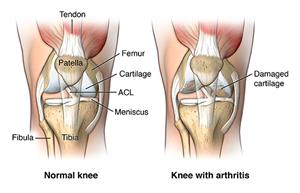Undergoing joint replacement surgery is a significant step towards improving mobility and quality of life. However, the road to recovery doesn’t end with the surgery itself. Adopting certain lifestyle modifications can play a crucial role in ensuring a successful recovery and maintaining long-term joint health.
Here’s a comprehensive guide on lifestyle changes recommended for patients post-joint replacement surgery:
1. Follow a Structured Rehabilitation Program
Physical Therapy: Engaging in physical therapy is essential. A structured rehab program helps restore strength, flexibility, and function to the replaced joint. It typically includes exercises designed to improve range of motion and build muscle around the joint.
Home Exercises: Adhering to prescribed home exercises between therapy sessions is crucial. These exercises help to reinforce the progress made during physical therapy and speed up recovery.
2. Adopt a Joint-Friendly Exercise Routine
Low-Impact Activities: Once you’re cleared by your healthcare provider, incorporate low-impact exercises such as swimming, walking, or cycling. These activities help maintain cardiovascular fitness without placing excessive stress on the joint.
Avoid High-Impact Sports: Steer clear of high-impact activities like running or jumping, which can stress the new joint and potentially lead to complications.
3. Maintain a Healthy Weight
Balanced Diet: Eating a balanced diet rich in fruits, vegetables, lean proteins, and whole grains can help you maintain a healthy weight. Excess weight puts additional strain on the joint, which can hinder recovery and lead to premature wear.
Weight Management: If you’re overweight, consider working with a nutritionist or dietitian to develop a weight management plan that supports your recovery and overall health.
4. Practice Good Joint Care
Protect Your Joints: Use assistive devices such as walking aids, braces, or supports as recommended by your healthcare provider. These tools can help protect the new joint during the early stages of recovery.
Avoid Prolonged Sitting or Standing: Alternate between sitting and standing to prevent stiffness and improve circulation. Use a supportive chair and maintain good posture to avoid unnecessary strain on your joint.
5. Manage Pain and Swelling
Medications: Follow your doctor’s instructions for pain management and take prescribed medications as directed. Over-the-counter pain relievers may also be recommended, but consult with your healthcare provider before using them.
Cold and Heat Therapy: Apply ice packs to reduce swelling and heat packs to alleviate stiffness, as advised by your physical therapist or doctor.
6. Focus on Mental and Emotional Well-being
Stay Positive: Recovery can be challenging, and maintaining a positive mindset is crucial. Engage in activities that boost your mood and keep you motivated.
Seek Support: Don’t hesitate to reach out for emotional support from friends, family, or a counselor. Support groups for joint replacement patients can also provide valuable encouragement and shared experiences.
7. Adapt Your Living Environment
Safety Modifications: Make your home safer by removing tripping hazards, installing grab bars in bathrooms, and using non-slip mats. These changes can help prevent falls and accidents during the recovery period.
Accessibility: Ensure that commonly used items are within easy reach to avoid excessive bending or stretching.
8. Regular Follow-Up Visits
Monitor Progress: Keep up with scheduled follow-up appointments with your orthopedic surgeon or healthcare provider. Regular check-ups are important to monitor your recovery, address any concerns, and make necessary adjustments to your rehabilitation plan.
Report Issues: Inform your healthcare provider about any unusual pain, swelling, or functional limitations you experience. Early intervention can prevent complications and ensure a smoother recovery.
Conclusion
Post-joint replacement surgery, adopting these lifestyle modifications can significantly enhance your recovery and overall joint health. By engaging in physical therapy, maintaining a healthy weight, protecting your joint, and making necessary adjustments to your living environment, you can look forward to improved mobility and a better quality of life. Always consult with your healthcare provider before making any significant changes to ensure that they are appropriate for your individual situation.






Comments